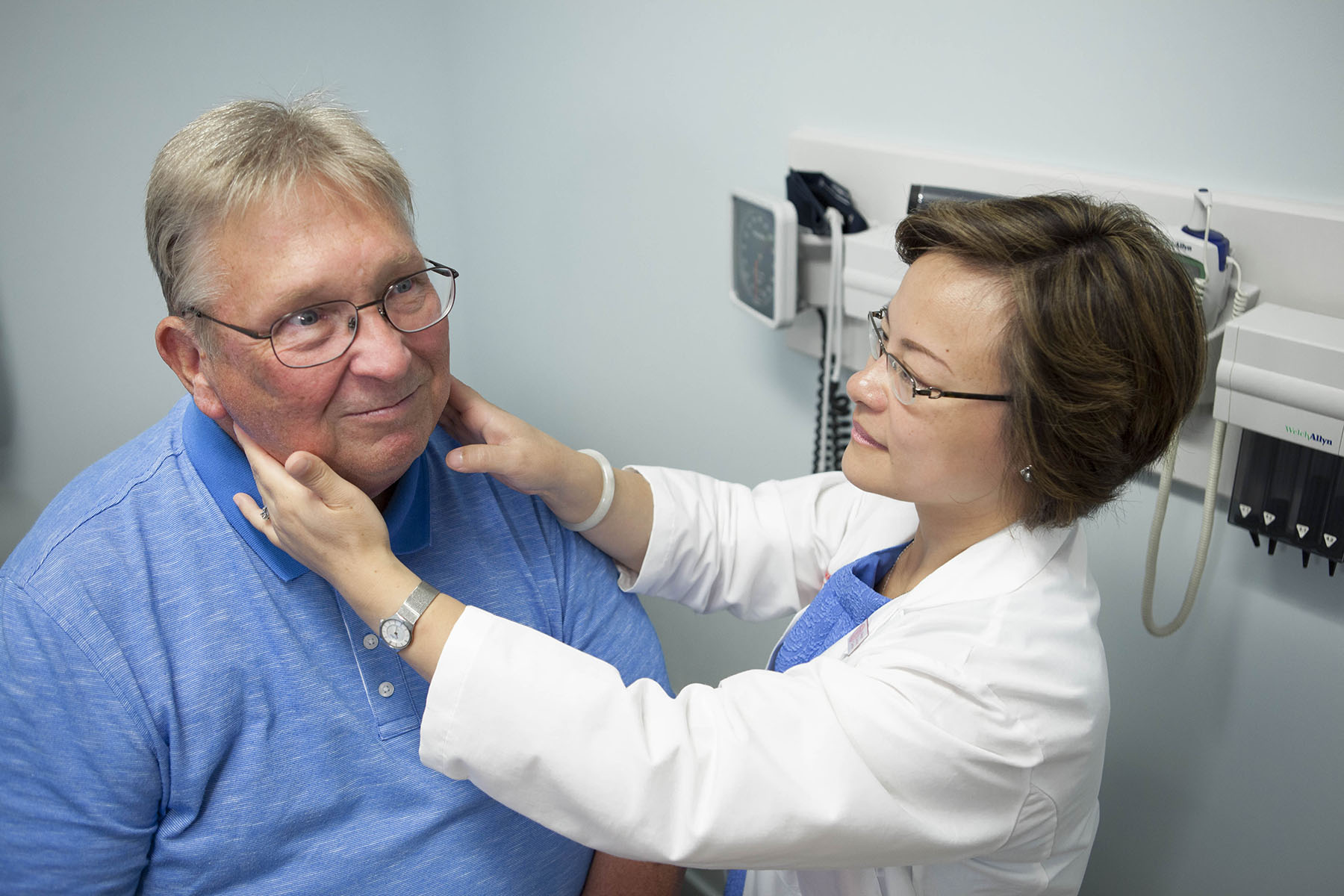Pfizer COVID-19 vaccine appointments are available to our patients. Sign up for Connect today to schedule your vaccination.

Dr. Jia Ruan, lead author of the New England Journal of Medicine study “Lenalidomide plus Rituximab as Initial Treatment for Mantle-Cell Lymphoma,” was in Washington on April 12 at the Clinical Research Forum fifth annual awards ceremony to receive the Top 10 Clinical Research Achievements Award. She also presented the study at the opening plenary session during the 2016 Translational Science meeting.
The 10 winning papers were chosen based on their degree of innovation from a pool of more than 40 nominations from 30 research and academic health centers nationwide.
The multi-center phase 2 study showed that a combination therapy lacking many of the typical debilitating effects of traditional cancer treatment could effectively manage mantle cell lymphoma by inducing remissions in the vast majority of patients.
Mantle cell lymphoma (MCL) is a subtype of non-Hodgkin lymphoma that primarily affects elderly individuals. Initial treatment is not standardized and variable, but usually includes chemotherapy regimens that are generally not curative and may not be tolerated by all patients.
In this ongoing study, treatment with biologic combination of lenalidomide and rituximab led to high response rates and durable remissions in patients with previously untreated MCL, providing an effective alternative to conventional chemotherapy for a broad range of patients.
Thirty-eight patients have been treated on the study with induction and maintenance therapy. Among 36 evaluable patients, 92% responded to treatment, 64% of whom achieved complete response. Eighty-five percent of patients have no evidence of disease progression, and 97% remain alive at the two-year mark. The majority of patients reported a high quality of life as measured by quality-of-life instruments throughout treatment. The most common side effect were asymptomatic low white blood cell counts and transient inflammatory symptoms generally reversible with lenalidomide dose adjustment and supportive care.
“With this frontline treatment, we were able to achieve a very high quality and durable response rate without needing to use chemotherapy,” Ruan said. “It’s very meaningful for the patients who have always been told that their disease is without a cure.”
She thanked all of the patients who participated in the trial, as well as her Weill Cornell Medicine co-investigators: John Leonard M.D., Peter Martin M.D., Morton Coleman M.D., Richard Furman M.D., Paul Christos Dr.P.H. M.S., Orel Katz P.A., Jessica Katz P.A., and Amelyn Rodriguez R.N. Additional collaborators included Dr. Bijal Shah from Moffit Cancer Center, Drs. Steven Schuster and Jakub Svoboda from the University of Pennsylvania Abramson Cancer Center, and Dr. Sonali Smith from the University of Chicago Medical Center.
Original story posted to Weill Cornell Medicine Lymphoma